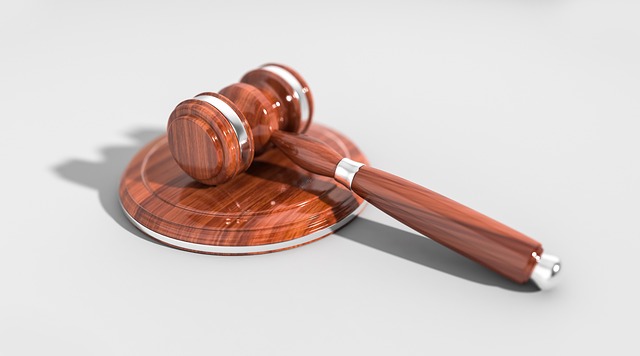The global criminal justice system is undergoing significant transformations, emphasizing fairness, restorative practices, and victim support. Alternative dispute resolution methods, improved legal aid, and specialized services aim to reduce recidivism and heal communities. There's also a drive to diversify and decarcerate systems, combat mass incarceration, and promote equitable sentencing. These reforms, coupled with technological advancements like forensic tools, surveillance, and AI, are reshaping modern criminal law in the digital age. High-profile cases further influence legal precedents, public perception, and legislative changes, ensuring criminal law evolves to address societal needs and maintain justice.
Delve into the captivating world of criminal law, where justice meets punishment. From global reforms reshaping legal landscapes to the intricate principles undergirding criminal justice, this article offers a comprehensive overview. Explore how technology is revolutionizing modern criminal practice and analyze high-profile cases that have left indelible marks on legal precedents. Stay informed with the latest developments in criminal law, as we navigate its complex tapestry.
- Latest Criminal Law Reforms and Changes Across the Globe
- Understanding Key Principles and Concepts in Criminal Justice
- The Role of Technology in Shaping Modern Criminal Law
- High-Profile Cases and Their Impact on Legal Precedents
Latest Criminal Law Reforms and Changes Across the Globe

The landscape of criminal law is constantly evolving, with reforms and changes being implemented across various jurisdictions worldwide. In recent years, a significant focus has been placed on enhancing procedural fairness, addressing systemic biases, and promoting restorative justice. One notable global trend is the increased adoption of alternative dispute resolution methods, such as mediation and restorative justice practices, which aim to reduce recidivism and foster community healing.
Many countries have also witnessed reforms aimed at strengthening victim rights and participation in the criminal justice process. This includes enhanced access to legal aid, better support services for victims, and more opportunities for them to provide input during investigations and trials. Additionally, there has been a growing emphasis on diversifying and decarcerating criminal justice systems, with initiatives to reduce mass incarceration rates and promote more equitable sentencing practices. These global reforms reflect a broader push towards more humane, effective, and just criminal law approaches.
Understanding Key Principles and Concepts in Criminal Justice

Delve into the world of criminal law, and you’ll uncover a intricate web of principles and concepts that form the backbone of justice systems worldwide. At its core, criminal law defines what constitutes a crime, distinguishing between various offenses and their corresponding penalties. Understanding these definitions is crucial for both legal professionals and individuals navigating the complexities of the justice process.
Key principles like “beyond a reasonable doubt” and “presumption of innocence” are fundamental to ensuring fair trials. These concepts protect the rights of the accused, guaranteeing that guilt is established conclusively before a conviction is made. By grasping these fundamentals, one gains insights into the delicate balance between upholding societal order and safeguarding individual liberties, which forms the essence of criminal justice.
The Role of Technology in Shaping Modern Criminal Law

In today’s digital era, technology plays a pivotal role in shaping modern criminal law. From forensic analysis of digital evidence to real-time surveillance, advancements have revolutionized the way crimes are investigated and prosecuted. The integration of cutting-edge tools like facial recognition, artificial intelligence, and blockchain is transforming criminal justice systems, enhancing efficiency and accuracy in legal proceedings.
Moreover, as cybercrimes become increasingly prevalent, technology offers both challenges and opportunities for criminal law. The rapid evolution of digital platforms necessitates the updating of legal frameworks to address issues such as data privacy, online fraud, and intellectual property theft. At the same time, technological innovations provide new avenues for crime prevention, investigation, and punishment, promising a more secure and just society in the digital landscape.
High-Profile Cases and Their Impact on Legal Precedents

High-profile cases often become defining moments in criminal law, shaping legal precedents and public perception. These trials attract intense media attention, placing a spotlight on both the crime and the justice system’s response. The impact of such cases extends far beyond the immediate outcome, as they can set new standards for how similar future cases are handled. For instance, prominent instances of wrongful conviction or novel legal strategies employed by defense teams may lead to systemic changes in criminal procedure.
Moreover, high-profile criminal cases often spark public debate on broader issues of justice, equality, and the role of media in shaping narratives. They can drive legislative reforms, prompt reviews of police practices, and influence judicial interpretations of existing laws. As a result, these cases not only determine the fates of individuals involved but also leave an indelible mark on the legal landscape, guiding the direction of criminal law for years to come.
In conclusion, the realm of criminal law is a dynamic landscape where global reforms, foundational principles, technological advancements, and high-stakes cases constantly intertwine. Staying informed about these developments is paramount for both legal professionals and folks interested in justice. By understanding key concepts, navigating modern tools, and keeping abreast of significant cases, we can all contribute to the ongoing evolution of criminal law and ensure it serves as a fair and effective symphony in our society.
